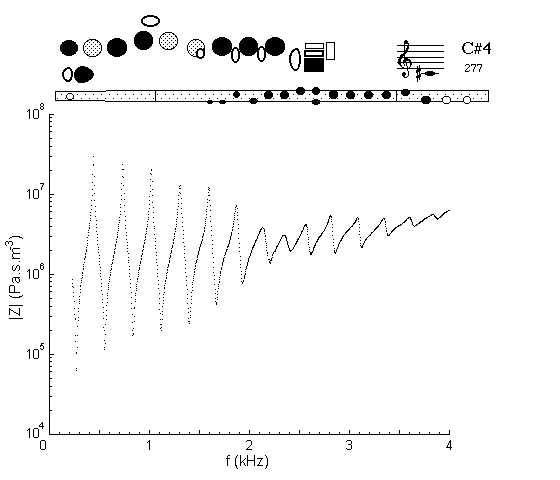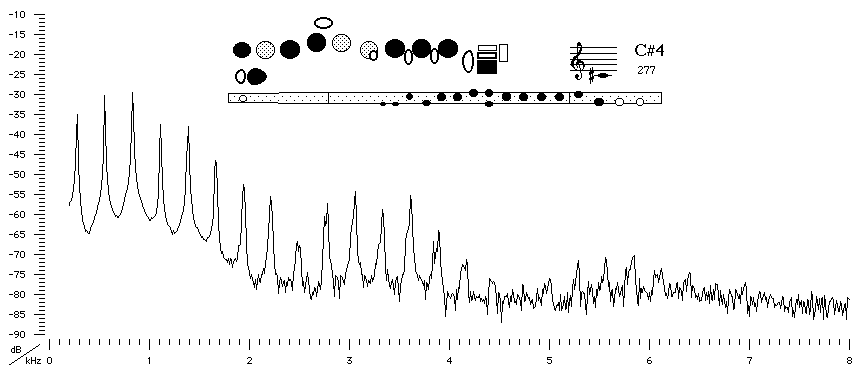| Acoustics of baroque, classical and modern flutes |
modern flute
|
C#4 |

|
Fingering Acoustic schematic Non-specialist introduction
to acoustic impedance |
With two holes open, the filtering effect of the downstream holes is now clear at frequencies above 2 kHz. The first six minima can be played, but usually flute players only play the first, for which the higher minima aid the production of harmonics.

Sound spectrum
of a modern flute with a B foot played using fingering for C#4.
![]()
![]()
![]()
![]()
![]() You can hear C#4
played by Geoffrey Collins.
You can hear C#4
played by Geoffrey Collins.
| Acoustic measurements are available for these flutes - modern B, modern C, classical C, classical D, classical flared, baroque Sound clips are available for modern B, classical flared and baroque |
To compare flutes, it is easiest to open a separate browser window for each instrument. |